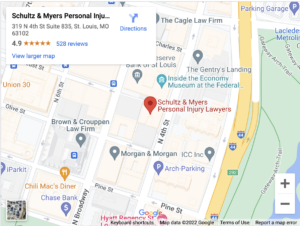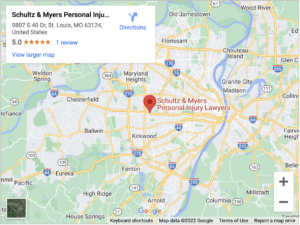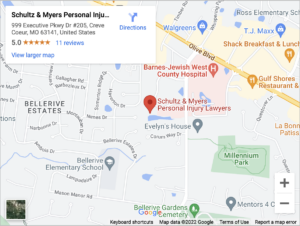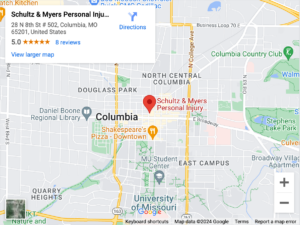
Knee injuries can leave you with mobility issues as well as pain. Your knees are complex structures that can sustain damage from trauma that occurs during car accidents, sports games, falls, and more.
If you have suffered a knee injury due to someone else’s negligence, you may be able to get compensation to pay medical bills, lost wages, and much more. Learn about what a knee injury is, how it can affect you, and whether you may be able to receive compensation.
What Is the Anatomy of Your Knee?
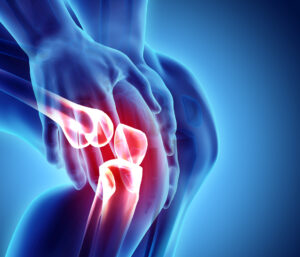
Within the knee, you can find three bones that join to form the knee joint.
These bones are:
Cartilage covers the ends of the tibia and femur, together with the back of the patella. This cartilage makes it easier for the bones of the knee joint to move as you straighten or bend your leg. Between your femur and tibia, you have the meniscus, which is cartilage that functions as a shock absorber, providing a cushioning effect.
Four ligaments connect the bones and stabilize the knee joint. These ligaments control your knee joint while it moves sideways and protect it from any unusual movements. Within your knees, you also have tendons, which connect the muscles to the bones.
All of these complex components must be healthy and intact for your knee to function effectively.
The Most Common Knee Injuries and Their Symptoms and Treatments
Some knee injuries are common among victims of car crashes, falls, or other types of negligence. Learn what they are, their symptoms, and what treatments are available.
Knee Dislocation
A knee dislocation occurs when a knee bone shifts out of place. It can happen easily if you’ve been in a collision or fall or if your knee has received any kind of trauma. In some instances, the knee can correct itself, though it may still cause symptoms and can dislocate more easily in the future.
Some of the symptoms of a dislocated knee are:
- Knee pain and tenderness
- Swelling
- Deformed appearance
- Inability to bend or straighten the knee
- Excess movement of the kneecap
For most people, turning to a doctor who knows how to place the bone correctly is vital. Treatment can include stabilizing the knee with splints. In more extreme cases, surgery may be necessary.
Knee Fractures
Your kneecap, or patella, protects your knee joints from damage. If you collide with an object or fall, the kneecap is the point of contact, receiving the worst of the impact. This makes it susceptible to fractures.
Some of the most common symptoms of knee fractures include:
- Swelling
- Severe pain around the kneecap
- Pain when moving the knee in both directions
- Kneecap tenderness
- Inability to straighten the leg
Although knee fractures are very common, they can also be serious. It is essential to have a professional set the bone correctly and help you immobilize the leg so the damage has time to heal. Some cases might also require surgery.
Knee Tendon Tears
This is another common injury that can occur from force. A fall can easily cause this issue.
Symptoms include:
- Bruising
- Cramping
- Difficulty walking
- Your leg giving way
- Indentation at the bottom of the kneecap
- The kneecap moving up to your thigh because it’s not anchored correctly
You may need to wear a knee brace to immobilize the knee, but it’s important to always depend on experts for this and not try to do it on your own. Many people also require surgery to get full use of the knee again.
Knee Ligament Tears
Knee ligament tears occur when the knee overextends or moves in a way it’s not meant to. The ligaments can’t support the movement, so they stretch or tear. The cruciate ligaments and collateral ligaments are the ones that are more likely to tear.
These kinds of tears are classified according to the degree of their severity:
- Grade I Ligament Injury: The fibers have been only slightly overstretched; minimal swelling and bruising
- Grade II Ligament Injury: The ligaments are partially torn, resulting in more pain, swelling, and joint pain than a Grade I tear
- Grade III Ligament Injury: The ligament is completely torn, causing severe pain, swelling, and bruising in the knee and surrounding area
The treatment will depend on the severity of the tear. In some cases, you may need to immobilize the knee, while in others, surgery and physical therapy are necessary.
What Can You Expect From Knee Injury Treatments?
The treatment your knee injury requires can vary, which is why turning to medical professionals is vital. Even if the pain is minimal, not treating a knee injury correctly can result in lasting and chronic pain.
Physical therapy may be necessary. This typically involves several weeks of specific stretches and exercises to help restore your knee joint’s function. These exercises will also strengthen the muscles surrounding the joints, helping to prevent future injuries.
If physical therapy and other treatments are not successful in alleviating pain and improving function, you may need surgery. Injuries like completely torn ligaments don’t heal on their own, requiring the intervention of experts.
Surgeons can perform many of these surgeries arthroscopically using small incisions and tiny tools. Some, however, require more invasive procedures.
Can You Get Compensation For a Knee Injury?
The biggest factor in whether you can receive compensation for a knee injury is how it occurred. An injury that happened because of someone else’s negligence, resulting in a slip and fall accident or a collision, could earn you compensation.
If the injury happened at your place of work, you may be able to receive workers’ compensation. In some cases, a workplace injury can also support a third-party claim against anyone else who contributed to the injury.
In cases where the knee injury happened because of a defective product, you have the chance to file a claim against the manufacturer. For car accidents that were not your fault, you may also be able to get compensation to pay for medical bills, property damage, and pain and suffering.
Contact Our St. Louis Personal Injury Lawyers To Discuss Compensation for a Knee Injury
Dealing with a knee injury can cause pain and result in mobility issues. It can require that you take time off from work for physical therapy while impacting all other aspects of your life.
If you have received a knee injury, turn to Schultz & Myers Personal Injury Lawyers at (314) 444-4444. With our experience and dedication, we can guide you through the process of filing a claim and getting the compensation you deserve.

